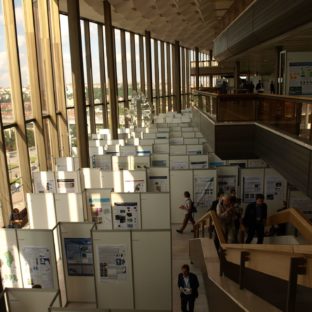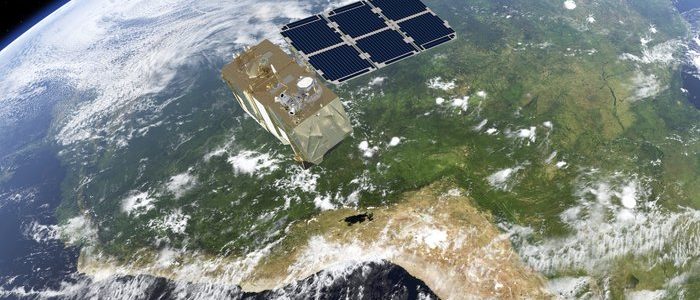The symposium, held every third year, is very important for exchanging knowledge and experience, meeting colleagues, establishing new contacts, not to mention possibly getting new ideas.
For the past 25 years, since the launch of ERS-1, Europe has spent enormous resources in order to increase the knowledge about weather conditions and climatic processes on earth and the results now show that Europe plays a major role when it comes to environmental and climate research. Thus, the new and better sensors that are supposed to be launched over the next few years will undoubtedly increase that particular knowledge. In addition, one will be able to monitor the process the best way possible.
Climate changes is the topic of today in every aspect, not only in the scientific community, however, satellite sensors are regarded the ultimate tool to increase the knowledge about processes that influence the climate, and to monitor the evolution in the climate system. Thus, what data from space can be used for was the main topic of the Living Planet Symposium 2016.

Part of the very large poster area. Credit: Nordicspace
This year’s symposium was definitely the most significant event of this type and attracted more than three thousand participants, mainly scientists who like to introduce their findings to the community, but the event also attracted students and other members of the community, aiming at getting an update on their prior knowledge about this important topic. Surprisingly several young people showed up, something the scientific community believes indicates a great interest in the topic, not to mention the fact that this may possibly recruit new members to the scientific community.
The main topics of this year’s symposium were land, ocean, cryosphere, atmosphere, hazards, the Earth itself and finally, methods and Products.
When it comes to who drew the largest crowd, the topic, land, had the largest numbers of oral and visual presentations, however, cryosphere also gathered huge crowds, mainly because these areas visibly change the most, thus, act as the best indicator that in fact the climate is changing.
Most of the posters were related to research and few were related to practical use of this data. Crop monitoring, precision farming and hazard monitoring were three of the few topics related to practical use of satellite data. For the next symposium, products should be added to the top three on the list of important topics and have more oral and poster presentations.
Time for Rethinking?
Attending an event like the Living Planet Symposium, provides a very good indication of what kinds of research activities that have been carried out in Europe and the rest of the world. Most presentations, oral or in the form of posters, are related to research based on data received from sensors in space.
This research has mainly focussed on increasing knowledge and a better understanding of the processes on earth and the surroundings, and about the conditions of the atmosphere, ocean, land and cryosphere. In addition, the Earth Monitoring Satellites in the Copernicus programme will continually provide our society with an up-to-date view over the Earth’s condition many years ahead.
The prediction, shown in various research conducted over the years, show that the climate is changing towards warmer and more extreme weather, the ice caps are decreasing, the ocean level is increasing. All these changes are mainly caused because the temperature is increasing, globally.
Equally true is the fact that these increasing temperatures can be related to human activities caused by overconsumption of recourses and the emissions that follow. Thus, the conclusion seems clear; future research must to a larger extent focus on how one can slow down the increasing emissions, alternatively stop them, and finally, possibly return to Mother Earth as it appeared before the Industrial Revolution.
The decision- makers have more than enough information to make the right and bold decisions to correct the wrongdoings of the past, and more information will come with better data and research.
However, coal and oil are still the most used source of energy, with the consequences that has for the climate. Overconsumption of resources in several parts of the world contributes to the shrinking quality of life for all. The main goal for all must be to cut down this overconsumption, stop the heating of our planet and make it a better place for all.
Conclusively, when conduction research, whether it is a situ research in Arctic or the Antarctic, or launching satellites, huge ships or aircrafts are often used to carry the necessary equipment, and often to vulnerable areas of the world, like mentioned above. Meetings and conferences involve different types of consumption too, and all these activities leave their own sets of environmental footprints. The researchers must also rethink their own consumption when making plans for their research programmes, in order to minimize environmental damages.
Researchers are nor exempt from caring for our environment, not even for the sake of research. All research must aim at bring us all a step forward, thus, the next Living Planet Symposium must focus on just.
Featured photo.
Sentinel-2 monitoring changing lands. Credit: ESA


